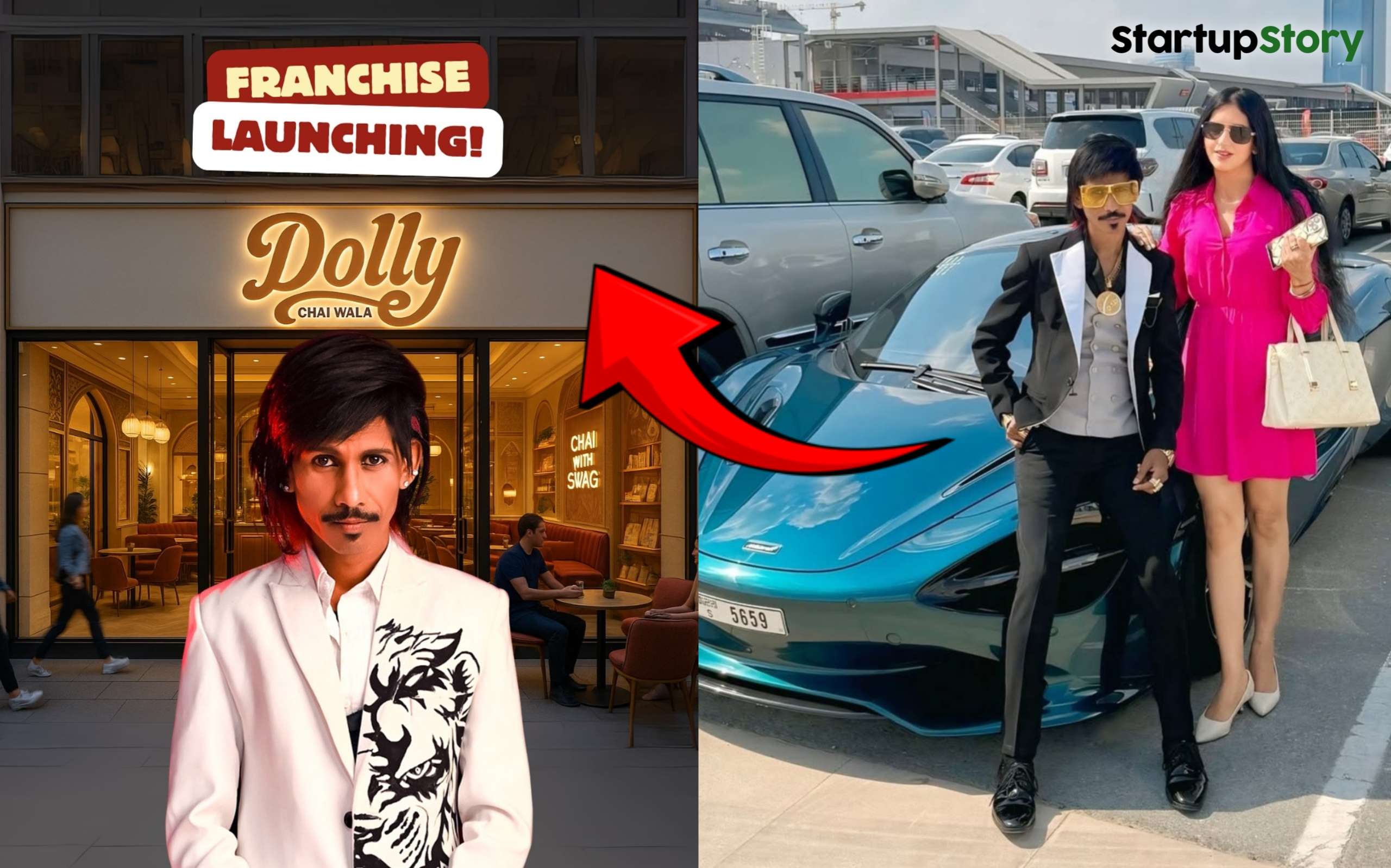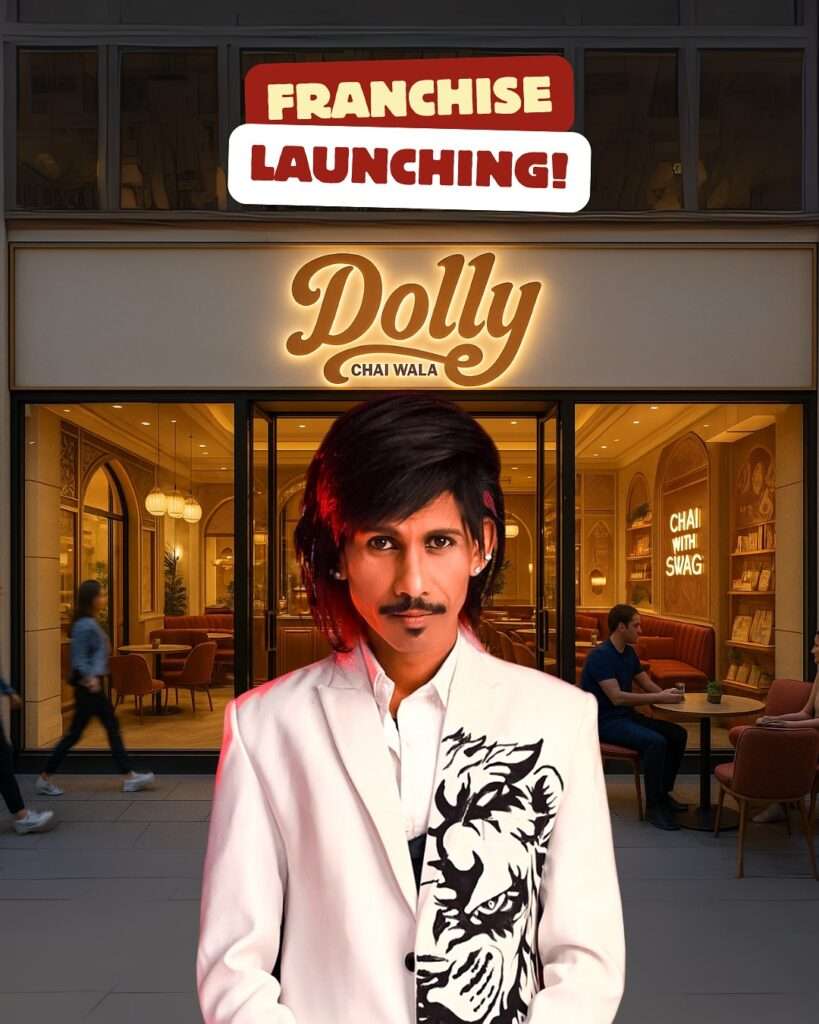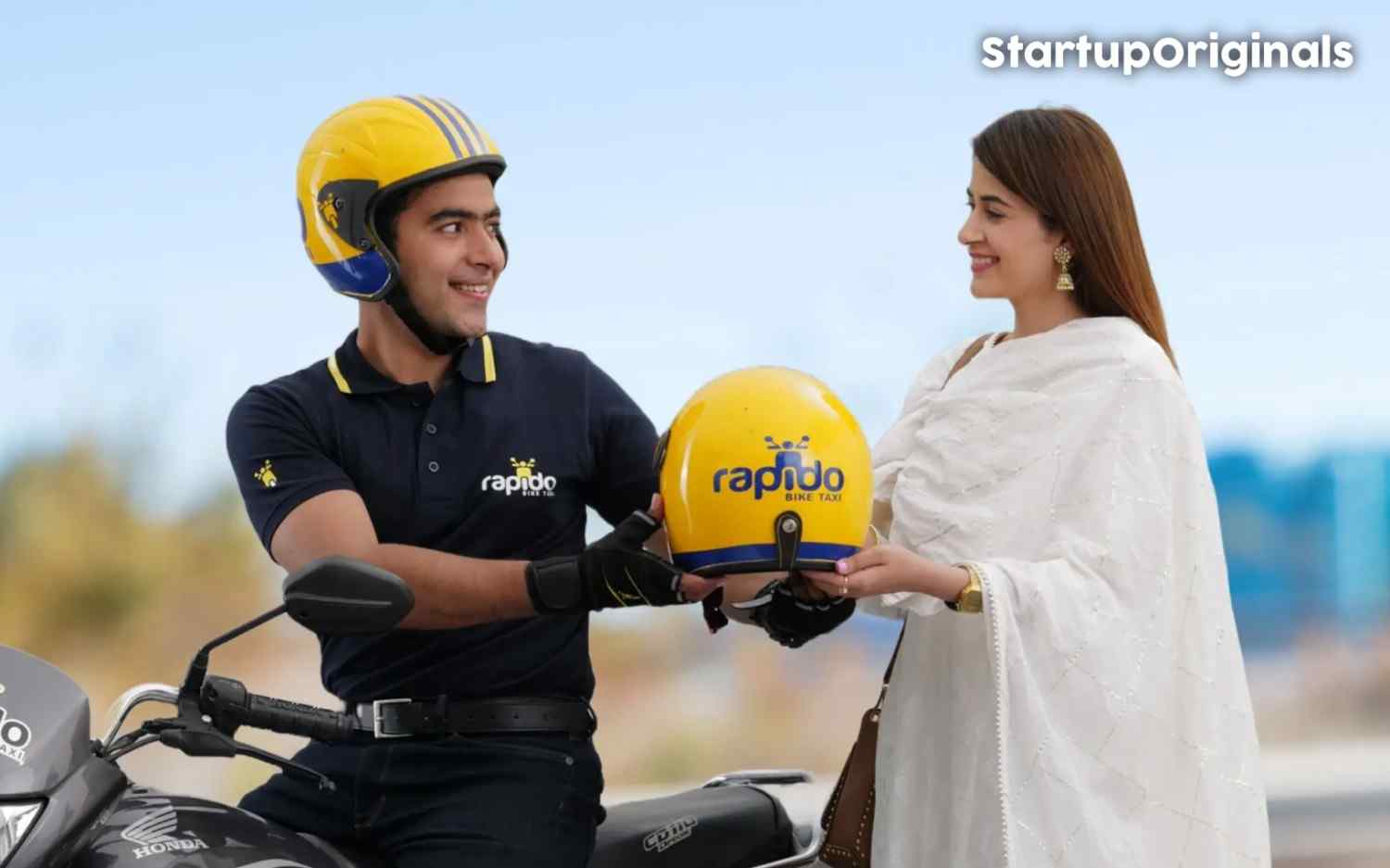
Dolly Chaiwala, popularly known as Sunil Patil, has taken his viral fame as a tea seller to the next level by launching a nationwide franchise model. Known for his flamboyant serving style, colorful attire, and signature sunglasses, Dolly became a household name after a video of him serving chai to Bill Gates went viral earlier this year. Since then, he has gained massive popularity across social media, with millions of followers admiring his unique way of turning a humble tea stall into a viral phenomenon.

In July 2025, Dolly officially announced the launch of his franchise model, aiming to take his street-style tea brand to cities and towns across India. Through a public statement and social media posts, he invited entrepreneurs to partner with him to spread his chai experience further. His message was clear this is not just about selling tea, but about creating a legendary brand that combines desi flavor with entertainment and personality.

The franchise model has been launched with three investment formats :
- Cart Stall – This street-style setup is designed for low investment entrepreneurs. It requires an estimated investment of ₹4.5 to ₹6 lakh and aims to replicate Dolly’s original roadside charm.
- Store Format – For those seeking a more stable location and better footfall, the store format ranges between ₹20 to ₹22 lakh in investment. It offers a small café-style setting while keeping the essence of street tea alive.
- Flagship Café – This is a premium option, meant for upscale locations or high-traffic urban areas. The investment required ranges from ₹39 to ₹43 lakh. These cafés are envisioned as experience centers, where customers can enjoy tea in a Bollywood-meets-street-style environment.
Dolly’s tea stall in Nagpur reportedly generates nearly ₹1 lakh in monthly income, and the brand aims to replicate that success at scale through these franchise outlets. The franchise package is expected to include brand training, standardized equipment, supply chain access, and branding material. However, Dolly’s larger-than-life personality will be hard to replicate, and franchisees are expected to carry forward the energetic and engaging service style that made the brand famous.
The announcement triggered a mix of reactions online. While many praised Dolly for his entrepreneurial leap and bold vision, others expressed skepticism about turning a viral personality into a sustainable business model. Concerns were raised around quality control, scalability, and whether the brand’s novelty could wear off with time.

One of the biggest challenges ahead will be ensuring consistency across outlets. Maintaining the signature chai flavor, presentation, and service style in multiple locations will require strong training and operational control. There’s also the issue of legal compliance. Dolly’s original stall reportedly operates without formal registration, and future franchises will need to meet proper regulatory standards.
Despite the criticism, Dolly’s move is seen by many as an inspiring story of street-level hustle evolving into a national business model. From entertaining customers on a footpath in Nagpur to launching a chai empire across India, his journey reflects the potential of personal branding in today’s digital age. If executed well, Dolly Chaiwala’s franchise model could redefine how street food and viral content intersect in India’s business scene.




